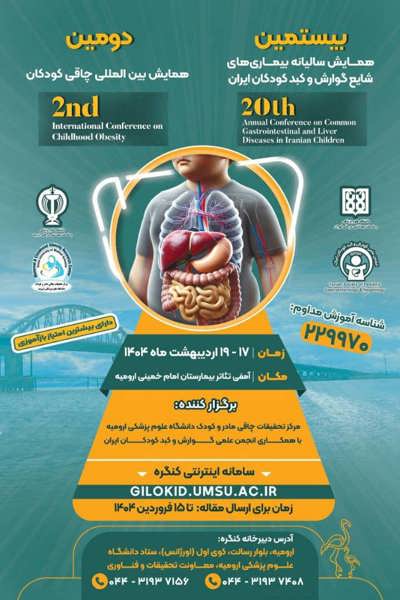0% Complete

صفحه اصلی
/
بیستمین همایش سالیانه بیماری های شایع گوارش و کبد کودکان ایران و دومین همایش بین المللی چاقی کودکان
نویسندگان :
کلمات کلیدی :
چکیده :
لیست مقالات بایگانی شده
Aydin Mahmoud Alilou - Roghayeh Faraji Akhijahani - Pouria Shieeh - Alisan Khodayarlo - Sina Manouchehrnia - Sana Nasirpour - Meysam Najafi - Parinaz Mahmoud Alilou - Reza Rostami - Amir Reza Bana Nasli - Amir Hossein Eskandari - Asal Khaksar Kolvanagh - Pardis Pour Ali
Elahe Karimipour - Haniye Karimipour
Sadegh Feizollaghzadeh - Amir Hasanzadeh - Sina Rezaei
Aylin Ebrahimpour - Faezeh Ghalichi - Negar Moosaee Farahani
Amirhossein Hosseini - Alireza Khalaj - Maryam Barzin - Mina Alibeik - Soheil Omid
Faezeh Tejareh - Laleh Payahoo
Bahman Mansouri Motlagh - Belal Pashaei - ُShahsanam Gheibi
Amir Mohammadi - Saeed Hosseinpoor - Zahra Atafar - Solmaz Lalehzari
Kosar Rajabi - Faezeh Ghalichi - Sadra Khodaei Alamdari

